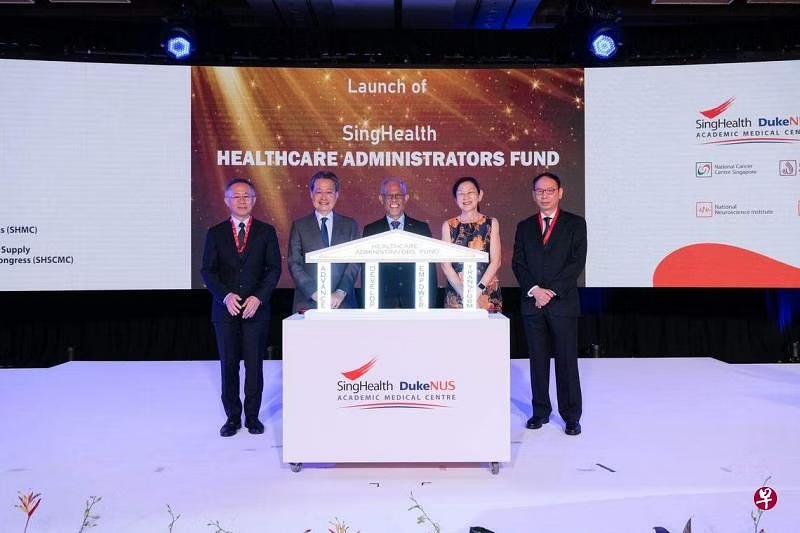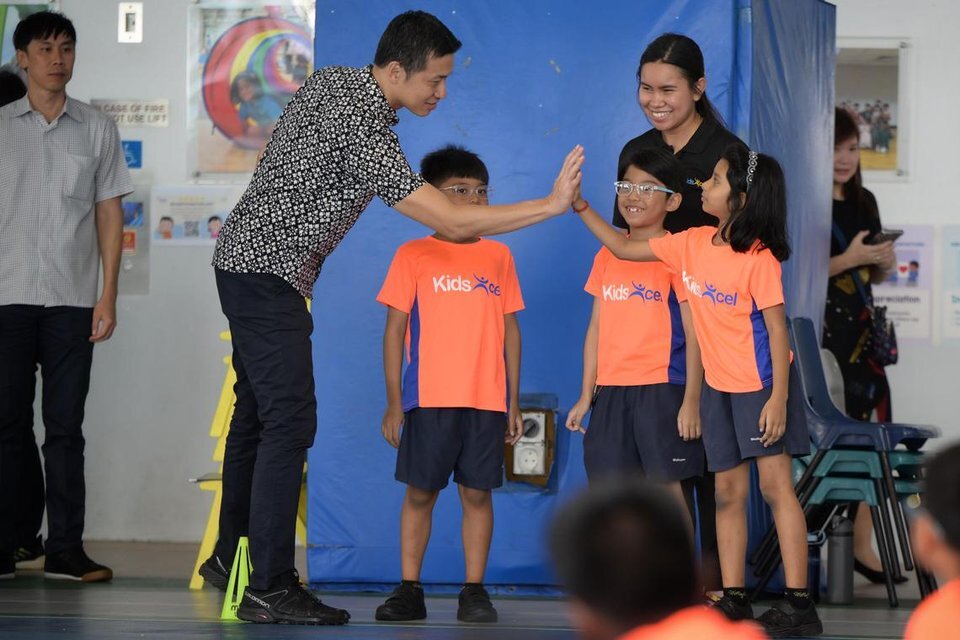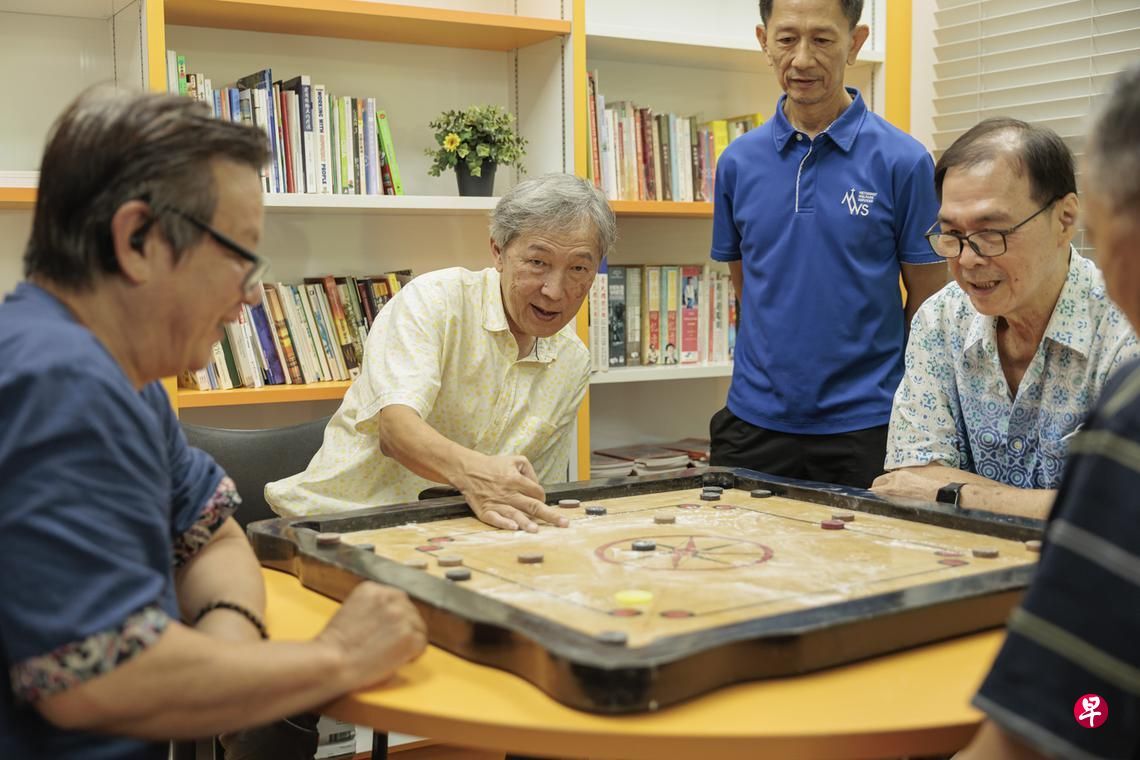新保集团推出300万元基金 助医疗行政人员职业发展


新保集团和ACE团队基金会启动一项300万元的基金,促进 新保集团医疗行政人员的职业发 展,除了培养专业技能,也让他 们有机会到海外进行交流和学术研讨。
这项医疗行政人员发展基金(Healthcare Administrators Fund)是首次针对新保集团医疗行政人员而设的基金,由新保集团和ACE团队基金会(ACE Team Foundation)分别贡献150万元。
新保集团旗下约有4600名医疗行政人员,占员工总数的15%。他们负责支持医疗保健系 统的日常运作和行政框架,包括研究、运营、财务、人力资源、教育和通讯等多个领域。
符合条件的医疗行政人员将由上司提名,并接受评估。成功获得提名者可以申请培训基金。医疗行政人员可以通过教育与培训提升自己,也可以到海外跟其他国家的行政人员进行学术交流,然后把所学的带回新加坡。
2023年新加坡医疗管理大会在星期三(8月16日)举办,社会及家庭发展部长兼卫生部第二部长马善高致辞时指出,在医疗保健管理方面采取更有效、更创新的战略是必须的,为确保医疗保健系统的可持续发展,新加坡必须发展医疗服务和管理模式。他说,医疗保健管理并不局限于机构的四面围墙内,必须跨学科合作,包括医疗行政人员与其他伙伴的广泛合作。
在新保集团公共联系部门服务的高级执行员曾芳琳(30岁)说,作为一名年轻的医疗行政人员,她对新启动的医疗行政人员发展基金感到兴奋。有了这项基金,她就可以寻找机会学习新技能、增加见识包括加深了解不断发展的医疗保健管理领域。
44岁的新保集团营运部门副主任林志忠也在受访时说:“医疗保健系统内的业务要求是高度专业的,必须提升医疗行政人员的职业发展,让大家有可持续的就业技能,也为塑造医疗保健领域带来重要的作用。”
另一方面,ACE团队基金会也会额外拨款150万元给新保集团所属的职场乐趣提升措施(Joy at Work initiatives),以支持医疗工作人员维持身心健康。
ACE团队基金会由本地科技公司Grab的联合创办人兼总裁陈炳耀与太太童维创立,从2021年创立至今捐助不少医疗组织,如 广惠肇留医院、儿童癌症基金会和全国肾脏基金会等。
信用:联合早报©新报业媒体有限公司。复制需要许可
This article was originally published in Zaobao here. Source: Zaobao © SPH Media Limited. Permission required for reproduction.
新保集团和ACE团队基金会启动一项300万元的基金,促进 新保集团医疗行政人员的职业发 展,除了培养专业技能,也让他 们有机会到海外进行交流和学术研讨。
这项医疗行政人员发展基金(Healthcare Administrators Fund)是首次针对新保集团医疗行政人员而设的基金,由新保集团和ACE团队基金会(ACE Team Foundation)分别贡献150万元。
新保集团旗下约有4600名医疗行政人员,占员工总数的15%。他们负责支持医疗保健系 统的日常运作和行政框架,包括研究、运营、财务、人力资源、教育和通讯等多个领域。
符合条件的医疗行政人员将由上司提名,并接受评估。成功获得提名者可以申请培训基金。医疗行政人员可以通过教育与培训提升自己,也可以到海外跟其他国家的行政人员进行学术交流,然后把所学的带回新加坡。
2023年新加坡医疗管理大会在星期三(8月16日)举办,社会及家庭发展部长兼卫生部第二部长马善高致辞时指出,在医疗保健管理方面采取更有效、更创新的战略是必须的,为确保医疗保健系统的可持续发展,新加坡必须发展医疗服务和管理模式。他说,医疗保健管理并不局限于机构的四面围墙内,必须跨学科合作,包括医疗行政人员与其他伙伴的广泛合作。
在新保集团公共联系部门服务的高级执行员曾芳琳(30岁)说,作为一名年轻的医疗行政人员,她对新启动的医疗行政人员发展基金感到兴奋。有了这项基金,她就可以寻找机会学习新技能、增加见识包括加深了解不断发展的医疗保健管理领域。
44岁的新保集团营运部门副主任林志忠也在受访时说:“医疗保健系统内的业务要求是高度专业的,必须提升医疗行政人员的职业发展,让大家有可持续的就业技能,也为塑造医疗保健领域带来重要的作用。”
另一方面,ACE团队基金会也会额外拨款150万元给新保集团所属的职场乐趣提升措施(Joy at Work initiatives),以支持医疗工作人员维持身心健康。
ACE团队基金会由本地科技公司Grab的联合创办人兼总裁陈炳耀与太太童维创立,从2021年创立至今捐助不少医疗组织,如 广惠肇留医院、儿童癌症基金会和全国肾脏基金会等。
信用:联合早报©新报业媒体有限公司。复制需要许可
This article was originally published in Zaobao here. Source: Zaobao © SPH Media Limited. Permission required for reproduction.
- Related Topics For You: DONOR STORIES, DONOR-ADVISED FUND, EDUCATION, HEALTH, NEWS, PROMOTING HEALTHCARE
.jpg)


